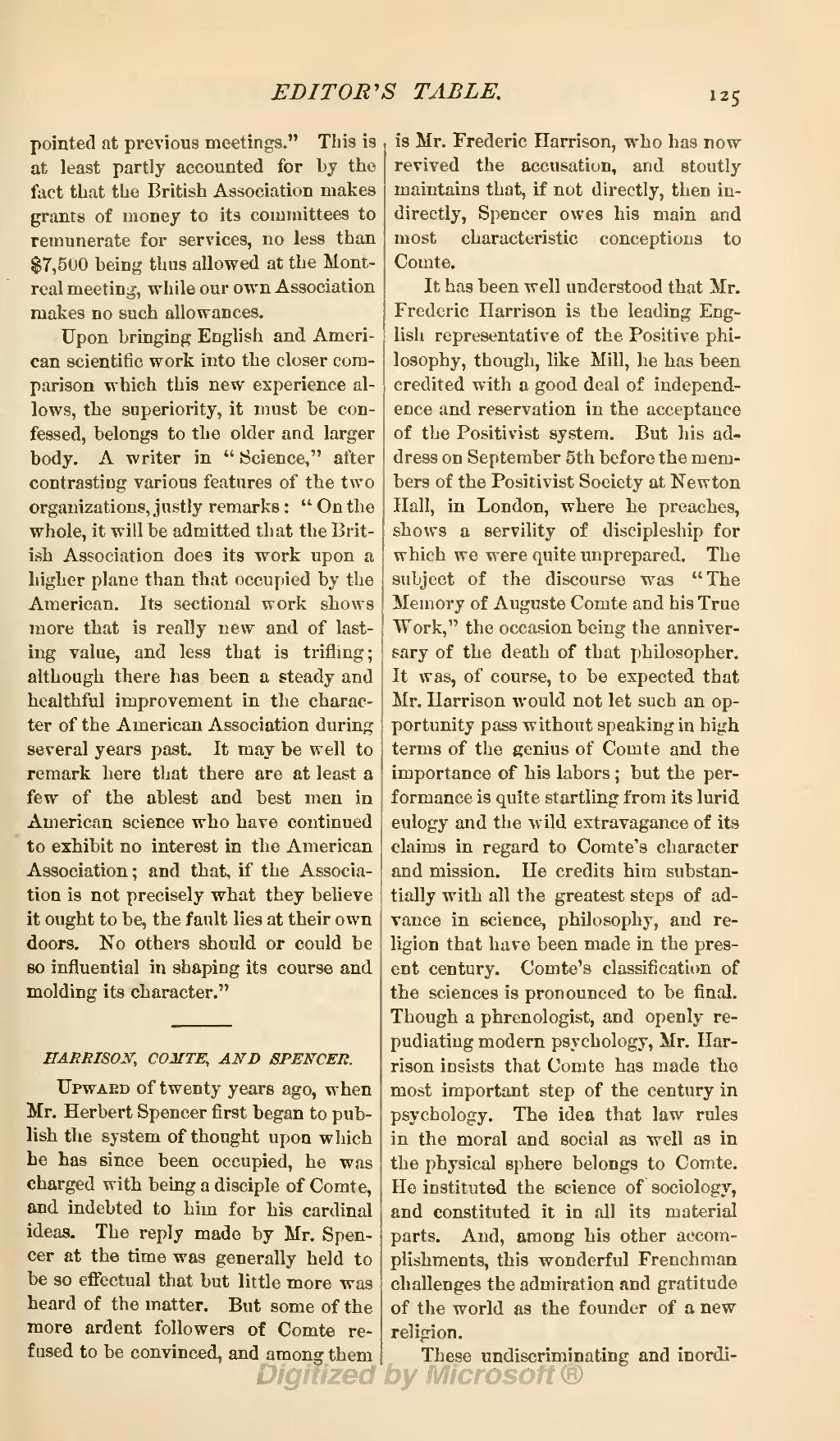pointed at previous meetings." This is at least partly accounted for by the fact that the British Association makes grants of money to its committees to remunerate for services, no less than $7,500 being thus allowed at the Montreal meeting, while our own Association makes no such allowances.
Upon bringing English and American scientific work into the closer comparison which this new experience allows, the superiority, it must be confessed, belongs to the older and larger body. A writer in "Science," after contrasting various features of the two organizations, justly remarks: "On the whole, it will be admitted that the British Association does its work upon a higher plane than that occupied by the American. Its sectional work shows more that is really new and of lasting value, and less that is trifling; although there has been a steady and healthful improvement in the character of the American Association during several years past. It may be well to remark here that there are at least a few of the ablest and best men in American science who have continued to exhibit no interest in the American Association; and that, if the Association is not precisely what they believe it ought to be, the fault lies at their own doors. No others should or could be so influential in shaping its course and molding its character."
HARRISON; COMTE, AND SPENCER.
Upward of twenty years ago, when Mr. Herbert Spencer first began to publish the system of thought upon which ho has since been occupied, he was charged with being a disciple of Comte, and indebted to him for his cardinal ideas. The reply made by Mr. Spencer at the time was generally held to be so effectual that but little more was heard of the matter. But some of the more ardent followers of Comte refused to be convinced, and among them is Mr. Frederic Harrison, who has now revived the accusation, and stoutly maintains that, if not directly, then indirectly, Spencer owes his main and most characteristic conceptions to Comte.
It has been well understood that Mr. Frederic Harrison is the leading English representative of the Positive philosophy, though, like Mill, he has been credited with a good deal of independence and reservation in the acceptance of the Positivist system. But his address on September 5th before the members of the Positivist Society at Newton Hall, in London, where he preaches, shows a servility of discipleship for which we were quite unprepared. The subject of the discourse was "The Memory of Auguste Comte and his True Work," the occasion being the anniversary of the death of that philosopher. It was, of course, to be expected that Mr. Harrison would not let such an opportunity pass without speaking in high terms of the genius of Comte and the importance of his labors; but the performance is quite startling from its lurid eulogy and the wild extravagance of its claims in regard to Comte's character and mission. He credits him substantially with all the greatest steps of advance in science, philosophy, and religion that have been made in the present century. Comte's classification of the sciences is pronounced to be final. Though a phrenologist, and openly repudiating modern psychology, Mr. Harrison insists that Comte has made the most important step of the century in psychology. The idea that law rules in the moral and social as well as in the physical sphere belongs to Comte. He instituted the science of sociology, and constituted it in all its material parts. And, among his other accomplishments, this wonderful Frenchman challenges the admiration and gratitude of the world as the founder of a new religion.
These undiscriminating and inordi-

